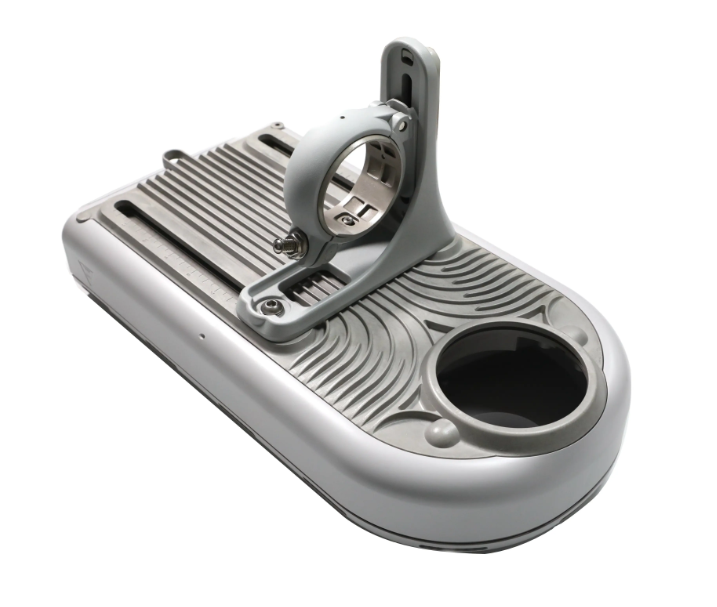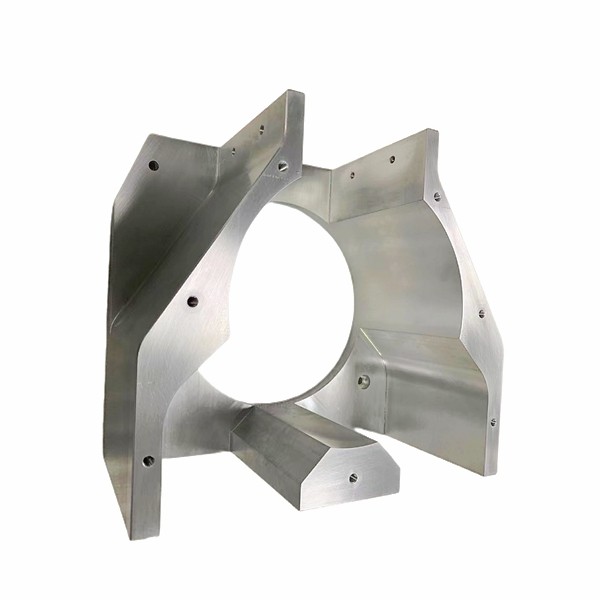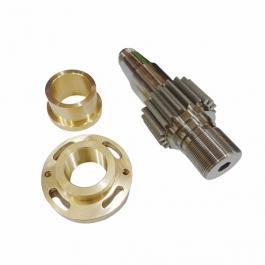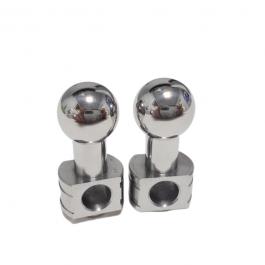Aluminum CNC machining parts
Name:Precision CNC machining parts
Material: Aluminum
MOQ: 1PCS
Standard: Europe

Aluminum alloy material type
Aluminum alloys have a wide range of properties such as flexibility, weldability, high strength, corrosion resistance, and light weight, as well as excellent anodized surface treatments. Aluminum is widely used in industry due to its low cost and machinable formability. The type of aluminum grade you ultimately choose depends on the intended use of your aluminum part in your fabrication project.
Alu 6061---The most versatile heat-treated aluminum alloy while retaining the premium properties of most aluminum materials. This grade has a wide range of mechanical properties and corrosion resistance, easy anodizing, good machinability and weldability, it can be manufactured by most common processes, especially CNC machining.
Alu 6063---Commonly known as an architectural alloy, it has fairly high tensile properties, excellent processability and a high degree of corrosion resistance, and is most commonly found in a variety of interior and exterior architectural applications and decorations. 6063 is a representative alloy for extrusion. Its strength is lower than 6061, and its extrudability is good. It can be used as a shape with complex cross-sectional shapes.
Alu 5052---his is the highest strength alloy in the non-heat treatable grade, with good corrosion resistance, weldability and formability, and its fatigue strength is higher than most other aluminum grades. It has good resistance to marine atmosphere and salt water corrosion and has excellent machinability.
Alu 6082---Aluminum 6082 is a medium strength alloy with excellent corrosion resistance. It has the highest strength of the 6000 series alloys. 6082 is known as a structural alloy, and plates of 6082 are the most commonly used alloy for machining. A relatively new alloy, the higher strength aluminum 6082 has replaced 6061 in many applications.
Alu 7075---This is one of the highest strength aluminum alloys available, it has an excellent strength to weight ratio making it ideal for highly stressed parts and is one of the extremely expensive alloys available. However, this grade is not easy to weld and has poor corrosion resistance. 7075 aluminum is a typical material used in the aviation industry, with complex structures and high precision.
CNC machining aluminum parts

Basically samples will use CNC machining that might be more cost effective and suitable for samples stage. If parts need to move mass production, die casting tooling will be a better solution.
Die casting mold and machinied process
Tooling and Machining Requirements for Aluminum Die Casting
Tooling and machining requirements for aluminum die casting vary depending on the alloy used, the complexity of the part, and other factors. Generally, it is important to consider the following when selecting a tool type:
• The choice of tool material should be based on the alloy being used and the temperatures needed in order to produce quality results. We normally use H13, SKD61, 8407, 8418, 8433 and W360 for die cast tooling.
• Care must be taken to ensure that there is sufficient draft angle so that components can easily move away from the die when ejected. A complete DFM analysis should be done before mold design.
• Second machining may be required after casting in order to achieve certain shapes or details, it includes CNC machining, drilling, tapping and so on.
• Surface Finishing options such as sand-blasting or vibratory polishing, anodizing, plating or painting may also be necessary depending on your needs.

Alunimum parts surface treatment



